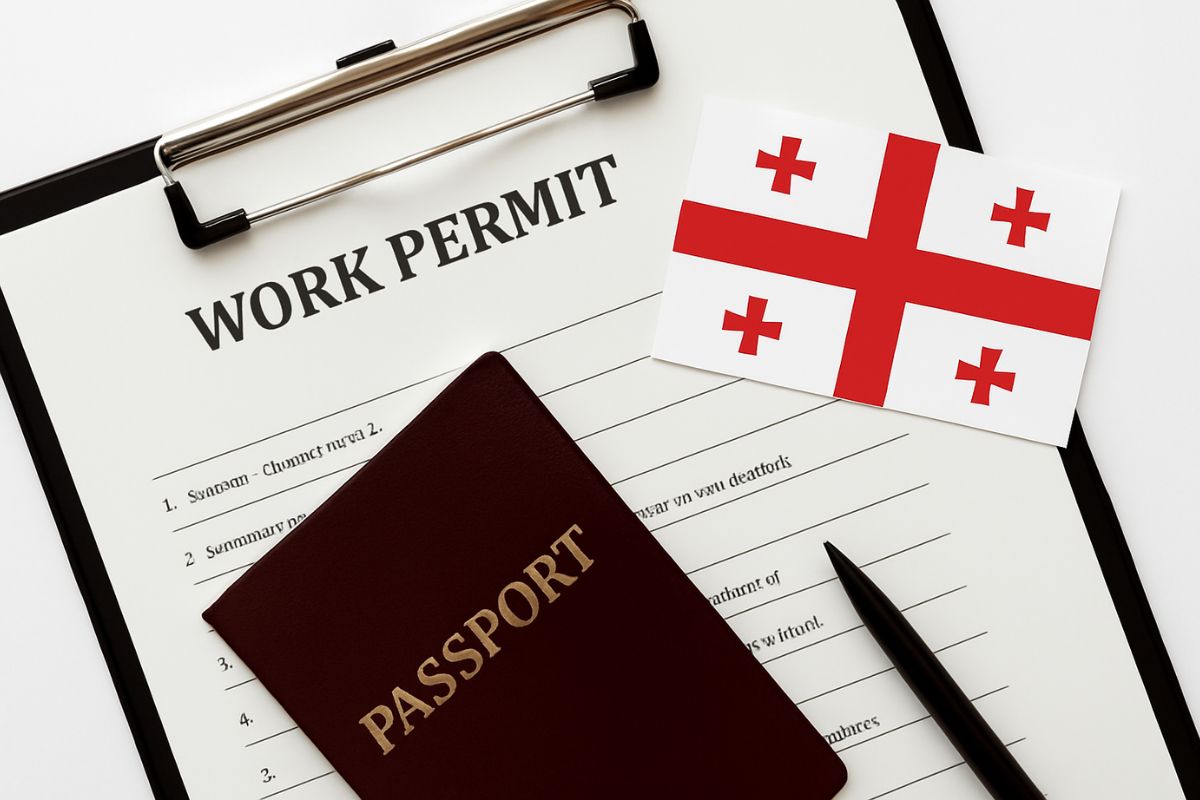Starting March 1, 2026, Georgia will require most foreign nationals to have a valid work permit before starting any employment in the country. This is a major departure from the current system, in which no such work permit requirement exists.
Let’s break down what the new work permit requirement means for job seekers, expats, freelancers, and businesses operating in Georgia.
Georgia Work Permit Requirement
Until now, Georgia has had one of the most relaxed policies in the region. Foreign nationals could legally work as long as they had a valid visa, residence permit, or were visa-exempt. There was no standalone work permit system.
That ends in 2026.
From March 1, 2026, both foreign employees and self-employed individuals will need to secure a work permit. Employers will be responsible for applying on behalf of their foreign staff.
Who’s Affected?
The new requirement will apply broadly but not universally.
✅ You will need a work permit if you are:
- A foreign employee working for a company in Georgia
- A self-employed foreign national (freelancers, consultants, etc.)
❌ You are exempt if you are:
- A holder of permanent residence
- A refugee, asylum seeker, or a holder of a valid investment residence permit
Expect more exemptions to be defined in upcoming regulations.
What If You’re Already in Georgia?
If you’re already working in Georgia before the March 1, 2026 deadline, you’re not off the hook, but you do get some breathing room.
You must obtain a work permit by January 1, 2027 to continue working legally. This one-year transition period gives existing foreign workers time to adjust.
How Long Will the Process Take?
According to the Georgia government, the standard processing time for a work permit will be up to 30 calendar days. But it is still unclear how easy or difficult the process will be.
Also Read: How to Travel to Georgia Visa-Free as an Indian Passport Holder in 2025
What Happens If You Don’t Comply?
Working without a permit? That’ll cost you. Fines will apply to both the foreign worker and their employer. And if you’re caught again? The fines could double or even triple.
So for companies hiring foreign talent, compliance is now mission-critical.
What This Means for Employers
If you’re running a business in Georgia that relies on international talent, you’re now looking at:
- A new administrative layer (on top of visa and residence processes)
- Extra costs
- Longer onboarding timelines
- Potential delays or denials in getting key staff into the country
It’s not just red tape. It could seriously impact your hiring strategy.
Why Now?
The Georgian government says this is about bringing more oversight to its labor market.
Officials are particularly concerned about foreign nationals entering on tourist visas and working under the radar. By formalizing the process, they hope to:
- Track foreign labor participation
- Crack down on unauthorized work
- Protect local workers
Still to Come: Final Rules
So far, we’ve only got the broad framework. More detailed regulations are expected in the coming months. These will spell out:
- Eligibility criteria
- Application procedures
- Possible exemptions
If you’re planning to live and work in Georgia, or if your business depends on people who are, stay tuned.
Final Thoughts
Georgia is tightening its rules around foreign employment. If you’re a foreign worker or employer in the country, now’s the time to start planning. The days of just showing up and getting to work are numbered.
To get daily travel news & updates, follow us on Facebook, X (Twitter), LinkedIn, Instagram, or Threads.
